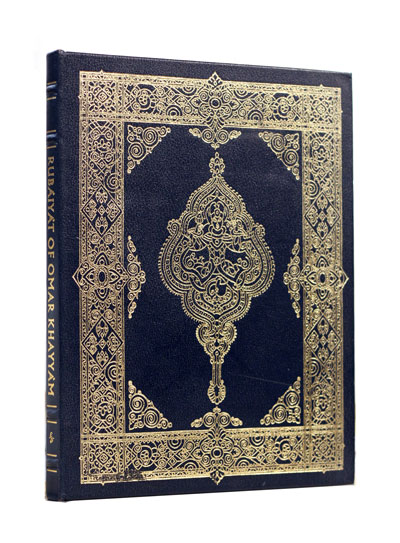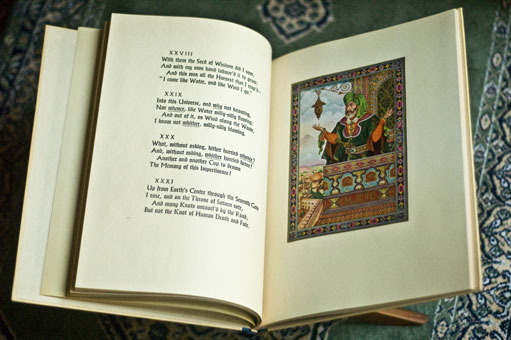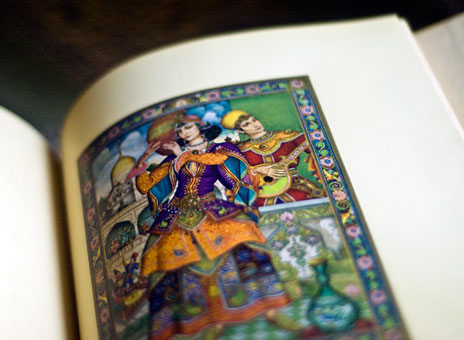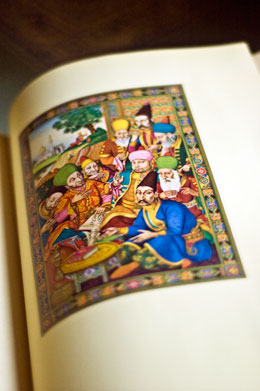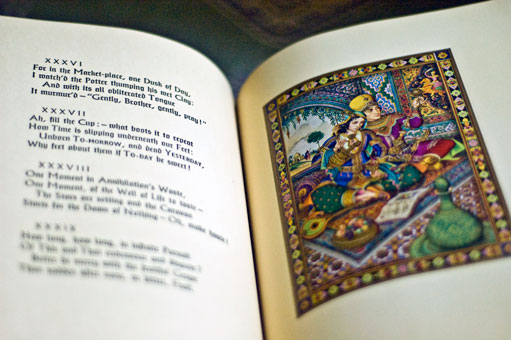About the edition:
A beautiful collector’s edition, this book features:
- Full top-grade leather binding
- Genuine 22k gold gilt to all edges, front design, spine, and back
- Silk moire endsheets
- Satin bookmark, sewn-in
- Hubbed spine with 4 raised bands
- Smyth-sewn binding for durability
- Premium acid-neutral archival paper that will not yellow
About Omar Khayyam (from wikipedia):
Omar Khayyám (18 May 1048–1131) was a Persian mathematician, astronomer, philosopher and poet. He also wrote treatises on mechanics, geography, and music.
Born in Nishapur, at a young age he moved to Samarkand and obtained his education there, afterwards he moved to Bukhara and became established as one of the major mathematicians and astronomers of the medieval period. Recognized as the author of one of the most important treatises on algebra before modern times as reflected in his Treatise on Demonstration of Problems of Algebra giving a geometric method for solving cubic equations by intersecting a hyperbola with a circle. He contributed to a calendar reform.
His significance as a philosopher and teacher, and his few remaining philosophical works, have not received the same attention as his scientific and poetic writings. Zamakhshari referred to him as “the philosopher of the world”. Many sources have testified that he taught for decades the philosophy of Ibn Sina in Nishapur where Khayyám was born and buried and where his mausoleum today remains a masterpiece of Iranian architecture visited by many people every year.
Outside Iran and Persian speaking countries, Khayyám has had an impact on literature and societies through the translation of his works and popularization by other scholars. The greatest such impact was in English-speaking countries; the English scholar Thomas Hyde (1636–1703) was the first non-Persian to study him. The most influential of all was Edward FitzGerald (1809–83), who made Khayyám the most famous poet of the East in the West through his celebrated translation and adaptations of Khayyám’s rather small number of quatrains (rubaiyaas) in Rubáiyát of Omar Khayyám.

